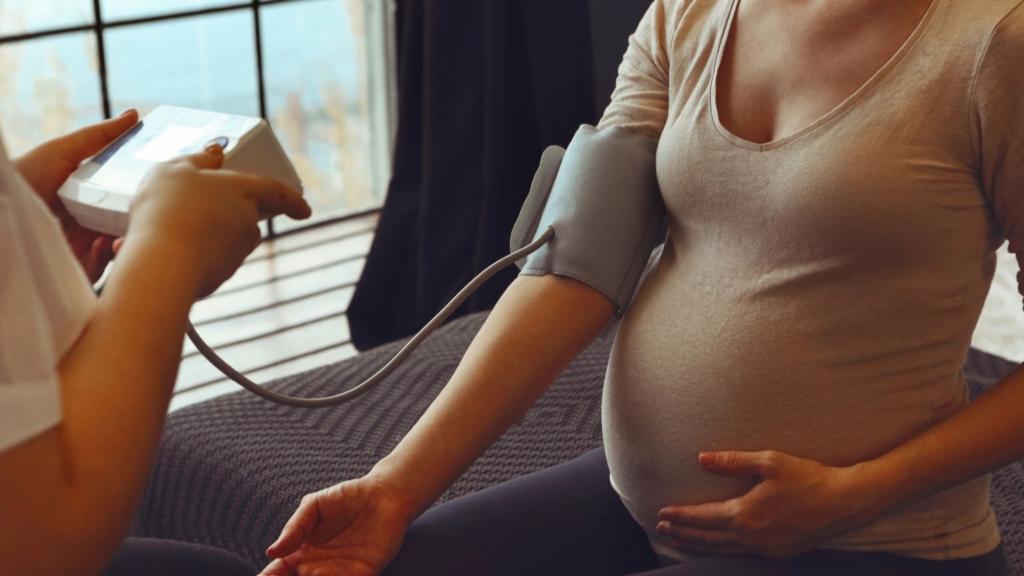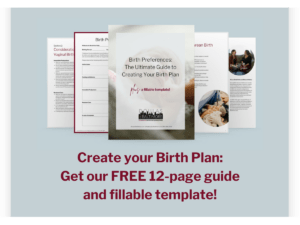“Why does my baby’s head look like a cone?!” New parents are often confused when their new addition’s scalp features bruising, swelling, or an odd shape. Not to worry, Caput succedaneum and head molding are incredibly common (temporary!) adjustments your baby made during birth. Let’s break down what these terms mean and why there’s usually no cause for concern.
What is Caput Succedaneum?
Caput Succedaneum is a soft, squishy, sometimes bruised swelling on top of the scalp, crossing suture lines (the seams between skull bones). You can think of it as localized fluid buildup.
What is Head Molding?
Head Molding is an elongated or cone-shaped head that is caused by the overlapping of the baby’s soft skull bones during passage through the birth canal.
Why do these conditions happen?
These conditions are caused by pressure from the uterus, cervix, or birth canal while baby is being born. They can present in any delivery but are more common when labor is prolonged, membranes are ruptured early, if a vacuum is used to assist delivery, or can even be seen in first-time pregnancies. While it can be unnerving for your baby’s head to look less than normal, remember that this is a very common thing that happens and it will in most cases resolve on its own without intervention.
What are the essentials to know about Caput Succedaneum and Head Molding?
Timing: These conditions will likely appear immediately or shortly after birth. Caput swelling typically resolves within hours to a few days. Head molding usually corrects itself within 1–2 weeks as bones shift back.
Appearance: Caput feels like a soft, puffy area; may have bruising. Molding makes the head look pointy or asymmetrical.
Pain Levels: Neither of these common issues are painful for your baby!
Other things to watch for: Another condition, Cephalohematoma, is similar in appearance to Caput. This condition is a hemmorhage that causes swelling under the skin but over the skull. While it typically isn’t anything to worry about, it can come with complications that are. That’s why it’s always important to work with your pediatrician to monitor and treat as needed.
FAQs
Q: Does this mean my baby’s brain was injured?
A: Absolutely not. Caput and molding are external or bone-related changes. They don’t affect the brain.
Q: Will my baby’s head stay this shape (head molding)?
A: Nope! Skull bones shift back naturally. By 2 weeks, most little heads have rounded out beautifully.
Q: Why does the swelling (Caput) move if I touch it?
A: Because it’s fluid under the scalp! Gentle pressure can temporarily displace it—this is normal.
Q: Do I need to treat these conditions?
A: Usually no treatment is needed. Just handle baby’s head gently. If bruising is present, it will fade like any other bruise.
Q: Is this the same as having a flattened head?
A: No, that’s a different type of positional head molding that can happen later on in baby’s life. Flattened heads typically occur due to prolonged time on flat surfaces and can be avoided or addressed by things like Tummy Time or a baby helmet (as prescribed by your pediatrician).
Q: When should I worry?
A: Contact your provider if:
- Swelling worsens after 2–3 days.
- Baby develops a fever, is excessively fussy, or refuses feeds.
- Jaundice appears (bruising from caput can increase bilirubin levels).
The Bottom Line
Caput succedaneum and head molding are common, harmless, and temporary results of birth. They highlight the amazing flexibility of your newborn’s skull. While unusual head shapes can be startling, they’re rarely a medical concern. Trust your pediatrician to monitor progress—and trust your baby’s body to find its perfect shape.
Got questions? Your birth team and pediatrician are always your best resource.
More Reading
Cleveland Clinic: Caput Succedaneum
Maryland Injury Law Center: Caput Succedaneum and Cephalohematoma Birth Injuries









